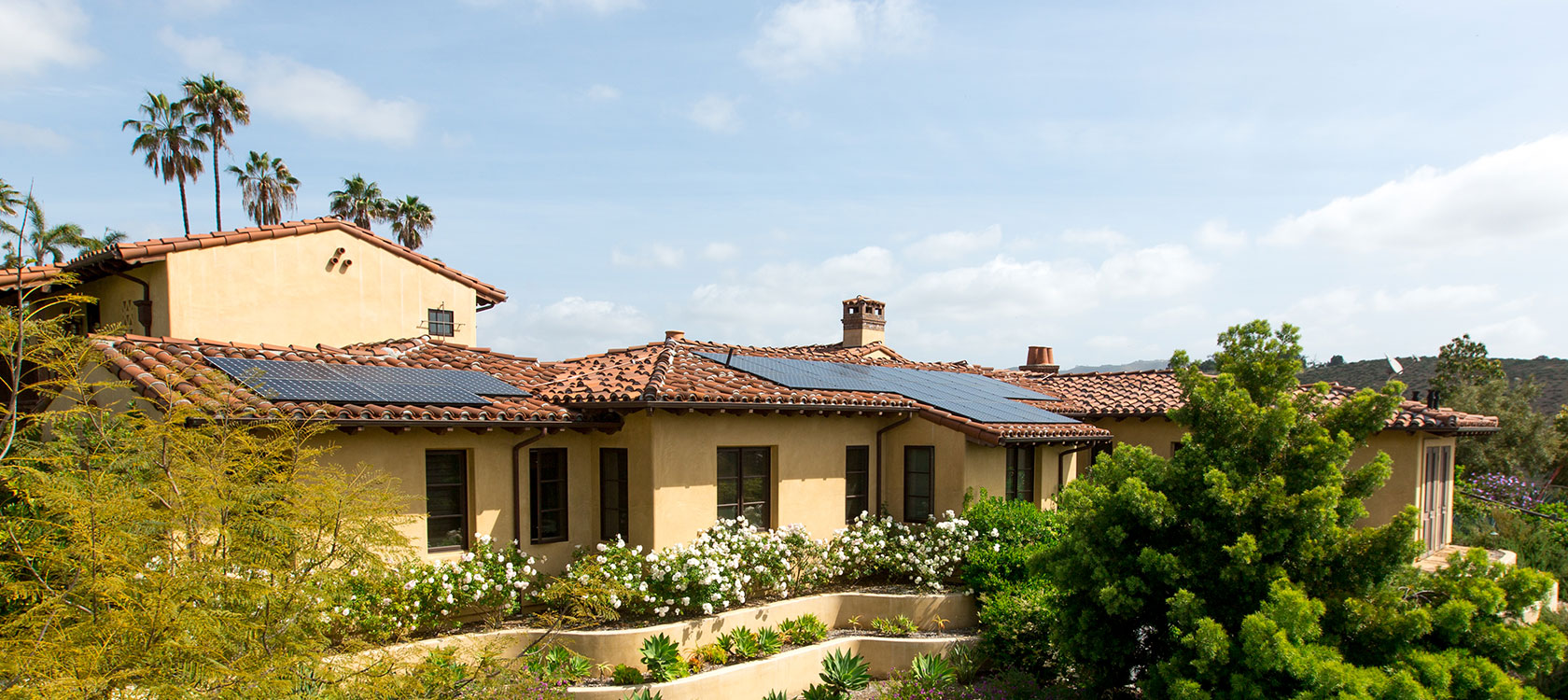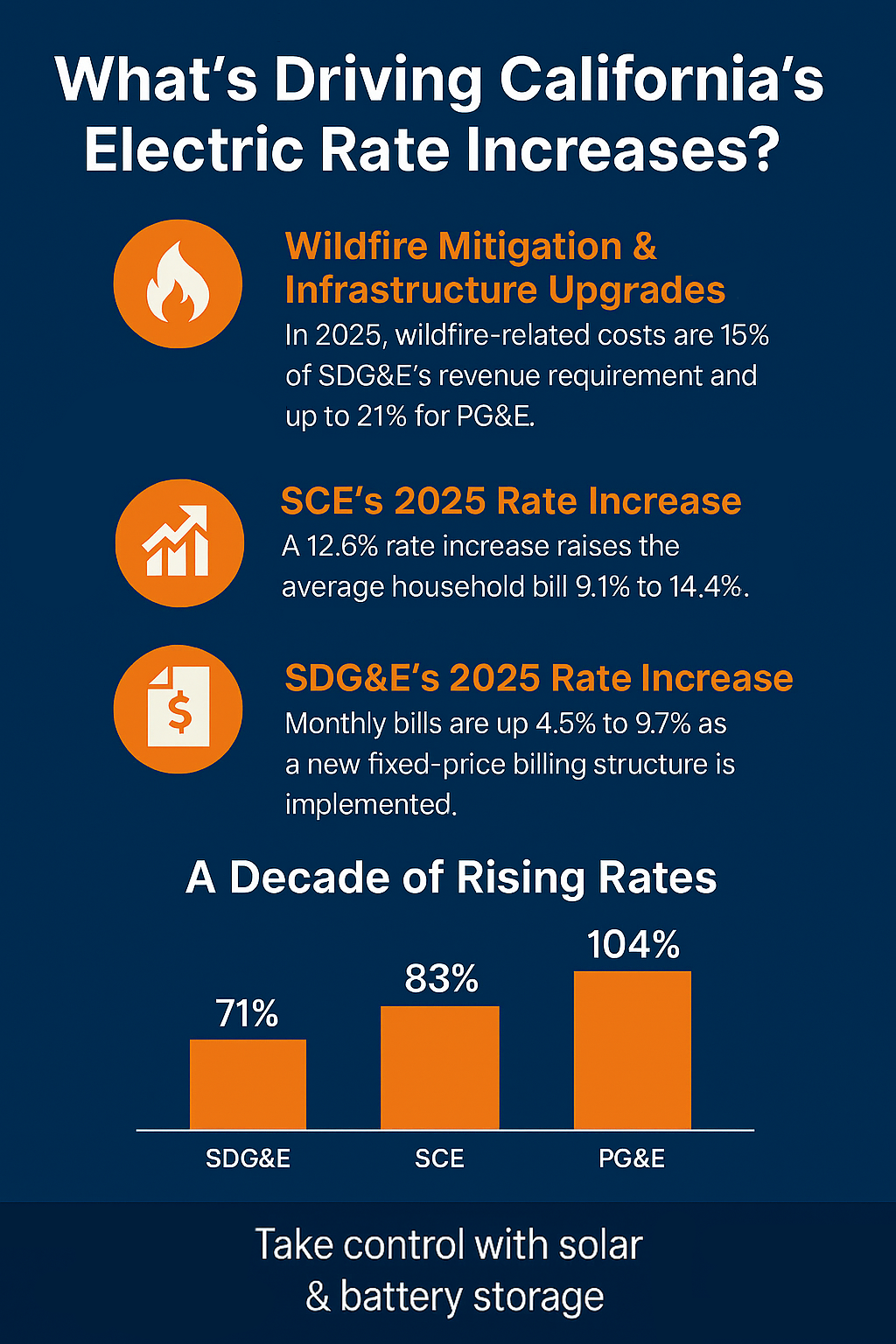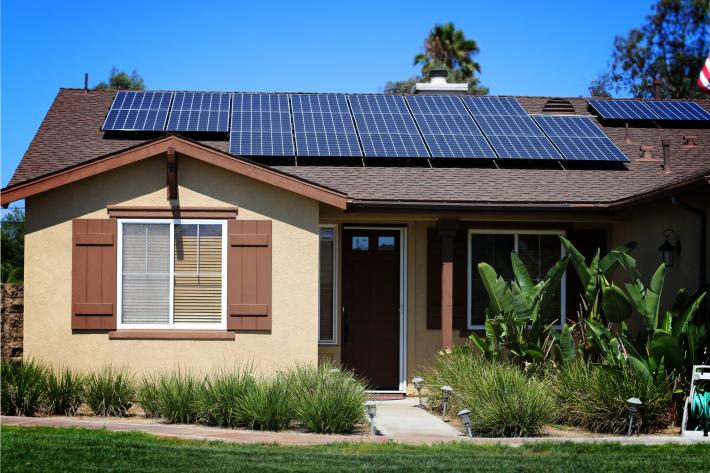
Protecting Your Greatest Asset
If you’re considering a solar (PV) installation, you’ve probably thought about issues like roof warranties and other factors that affect one of your best assets – your house. But have you thought about how the solar installation is attached to your roof? It doesn’t seem to be a topic that’s as researched as panel and inverter brands by consumers, but it really should be.
A lot of what I write is intended to inform solar consumers of the industry, hopefully arming them with knowledge so that they can make wise choices – especially when it comes to choosing a solar company.
With that in mind, in this blog post I’ll do a side-by-side comparison of two popular roof mounts for solar installations on tile roofs – Quick Mount PV’s QBase Universal Tile Mount and Prosolar’s TileTrac.
Voiding Warranties and Avoiding Leaks
Before we jump into the product review, let’s talk first about why using the proper roof mount product is critically important.
When a homeowner opts to have a PV installation added to their roof that means two things are going to happen: dozens of holes are going to be drilled through the roof and tiles will be removed. The roof mount product used dictates exactly how hundreds of pounds of solar panels are attached to a roof. In my mind, this raises two concerns – one immediate and one down the line.
The short-term concern is the quality of work your solar company will do. Does your solar installer warranty the penetrations they make in your roof?
The long-term concern is roof/home damage. Solar installations are semi-permanent additions to homes that have an intended life of 25+ years. That’s a long time for material to breakdown and leaks to form, and is a really important reason why the work of attaching a solar array to a roof needs to be done well.
The solution to both concerns is relatively simple: find a great solar company that is reputable and uses proper installation techniques and products.
Let’s talk products.
Quick Mount PV’s QBase vs. Prosolar’s TileTrac
These two products are commonly seen in residential solar installations with tile roofs. Admittedly, I am biased because at Baker we use a lot of Quick Mount PV products and don’t use TileTrac, but regardless I will attempt to give honest assessment of both products.
What’s in the Box
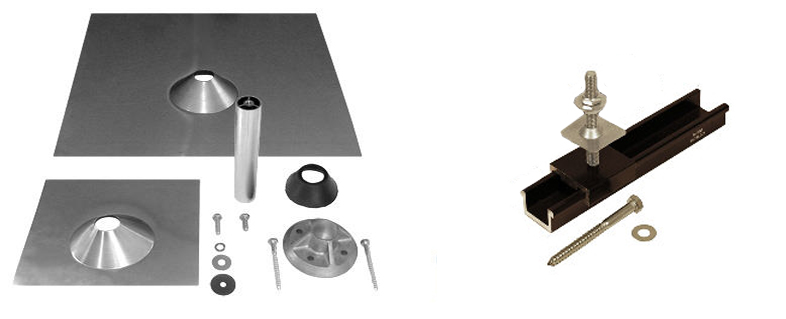
On the left you have QBase, on the right is TileTrac. As you can see, the Quick Mount PV product, QBase, comes with a lot more pieces.
Design
Both products are designed to be attached to a rafter. QBase allows for the use of two or four lag bolts, while TileTracis a single lag bolt design. QBase uses a 4-gusset circular base and standoff for load-bearing, TileTrac uses a threaded stud and an aluminum base to distribute weight. Both of these products are intended to do exactly the same thing: be a load-bearing structural attachment that is both secure and leak-proof.
Flashing
Flashing, or weatherproofing, refers to thin pieces of impervious material installed to prevent leaks.
When it comes to solar installations, there’s double flashing and single flashing. Double flashing means there’s a piece of metal fastened to the roof, and another piece of metal fastened to the outside of the tile. Single flashing usually refers to just flashing fastened to the outside of the tile.
QBase uses double flashing. From the picture above, you can see that the Quick Mount product comes with two flat pieces of metal. The picture below shows its installation.
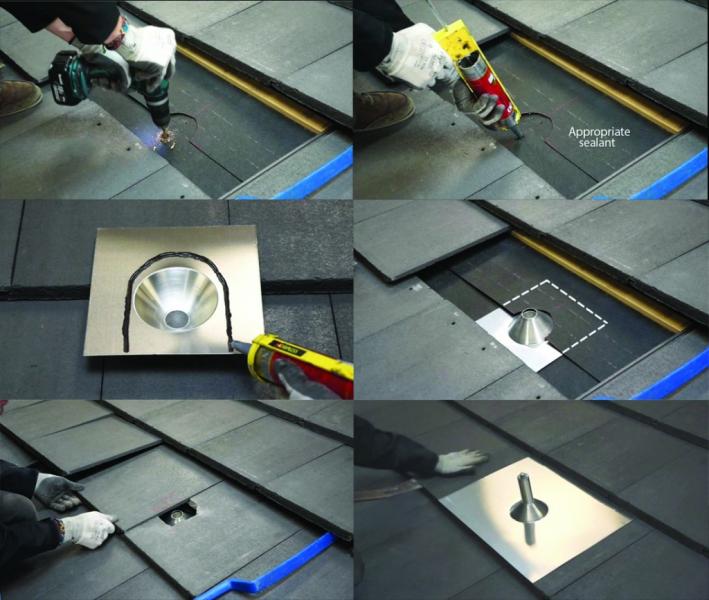
TileTracuses a single flashing that drops over the stud and onto the tile. Images of a TileTrac installation are below.
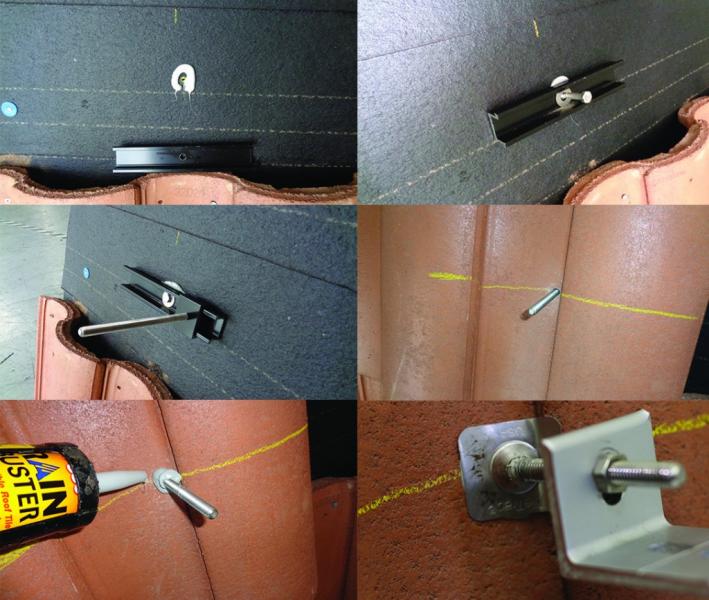
Ease of Install
TileTrac is technically the easier of the two mounting systems to install. Its single lag bolt design requires less drilling. Roof tiles do not require cutting, only a hole drilled. There are less pieces involved (less waterproofing).
That being said, both products are fairly easy for a skilled solar installer to install.
Cost
TileTrac is considerably cheaper than QBase. QBase can be 3-4 times the price of TileTrac. Depending on the size of the install, this can be a variance of hundreds of dollars.
Versatility
Quick Mount PV’s QBase is adaptable to asphalt shingle (composition), tile, shake, slate, metal shingle, and low slope roofs. TileTrac use is limited to s-curve and flat concrete tile.
Other factors
Both products are American-made. Quick Mount PV products are all IBC (International Building Code) compliant. I couldn’t find anything on this on Prosolar’s website or print material regarding TileTrac.
You Get What You Pay For
Well, there you go – my unbiased assessment of the two products.
Now for my personal opinion. QBase is clearly more expensive, but it’s likely a more dependable roof mount system in terms of weatherproofing and material degradation. Double flashing is the way to go. TileTrac is obviously the cheaper and easier-to-install roof mount – and that’s what the makers are going for. The cover of the TileTrac installation guide says that it’s the “easiest and lowest cost waterproof tile roof attachment.”
I don’t know about you, but I don’t want the easiest and cheapest product on my roof holding up my multi-thousand-dollar solar investment.
Cost is a huge factor for customers looking at going solar. For some, the bottom line is all that matters. I get that, but I also have to warn against it. I’ve said it before: in the solar industry, you get what you pay for. Sure, saving a thousand bucks now may seem like a lot, but that amount will be nothing compared to the cost of roof and house repairs from shoddy work.
A Quick Mount PV product isn’t the cheapest mounting option – and it’s easy to see why when you look at all the pieces involved – but isn’t the peace of mind of knowing you have a double-flashed, sturdy mount worth the extra money? Even if a homeowner was to save, for example, $1,000 (this is really high) by going with a solar company that uses TileTrac, that $1,000 broken up over the lifetime of the system is only a savings of $40/year. Me personally, I’d gladly pay the extra money and know that I have the best possible mounting solution on my roof. Quick Mount PV products have a 50-year expected life!
The Baker Way versus the Competition
At Baker Electric Solar we go the extra step for our customers, especially when it comes to roofing issues.
We do a thorough inspection of each roof prior to any work being performed.This is for the customer’s sake and ours. Roofs need to be in pretty good condition before hundreds of pounds of panels are loaded on them.
We have a few roofing companies that we partner with. They each offer the quality and service that we would expect from anyone we back with the Baker name. If a home’s roof needs work prior to an installation, this is the one time we contract the work out. We’re not roofers, we’re electricians. We leave heavy roof work to the professionals. It’s best when our customers work with our roofing partners as we can then ensure that roof warranties are valid.
According to an article on Angie’s List, one in three Angie’s List members who took an online poll and had roofing work done say they had a problem with their contractor. Of those, 68% mentioned shoddy work as a problem. As a reputable company with over 75 years of history, we’re not going to align ourselves with roofers that do poor work. If a customer’s roof needs work before an installation, we make sure it gets done right and for a good price.
We also offer a ten-year warranty against leaks caused by the holes we drill into the roof during installation. Many solar installers will offer warranties like this, but will they be around to honor them? It’s definitely something worth considering since roof repair can be costly, especially when solar panel installations have to be decommissioned and removed prior to repairs.
I talked about a Quick Mount PV product versus the Prosolar product, TileTrac, in this post because it’s an important topic. I fear that solar customers are often under informed on all aspects of an installation, so hopefully this helps shed some light on roof mounts.
At Baker, we can’t promise the lowest price. What we do promise is a high-quality, custom solar energy solution installed by Baker professionals at a fair price, with exceptional service every step of the way. It’s because we have a great team and use great products like Quick Mount PV that we are able to offer an industry-leading workmanship warranty of 25 years. And with our history and strength, you know we’ll be around to honor that warranty.
So, savvy solar shopper, next time you have a solar salesman in your home, remember to ask these questions:
What roof mount product do you use?
What warranty do you provide against roof leaks?
What kind of workmanship warranty do you provide against my solar system sliding off my roof?
What evidence can you offer to suggest your company will be around in 10, 15, 20 years to honor a warranty?

